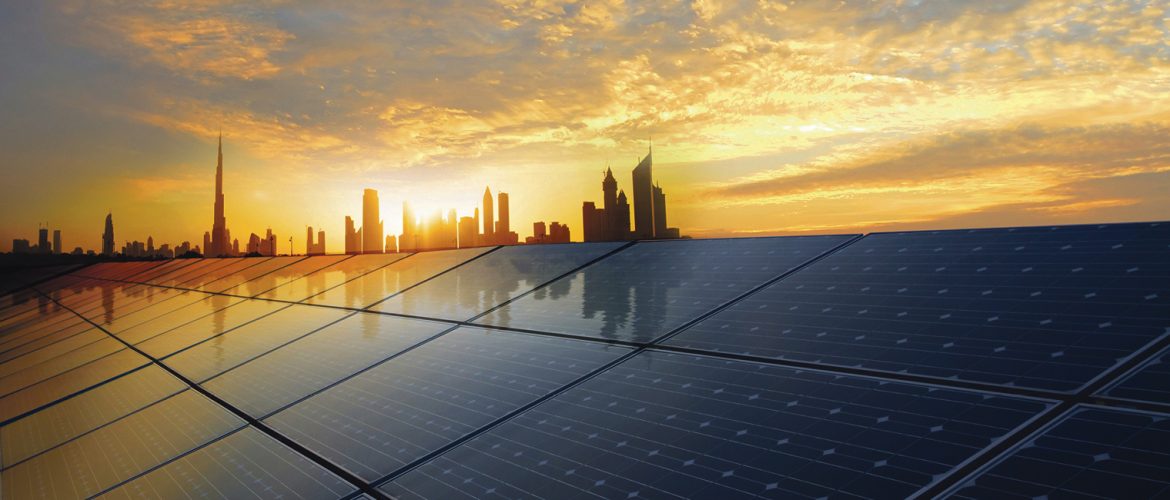The year 2030 seems like a landmark year in terms of achieving climate-friendly energy production as several countries across the globe are aiming to significantly cut their overdependence on non-renewable energy sources. Be it China, Germany, or the USA, the next seven years are going to be crucial in the way the world tackles the rising requirement of cutting the carbon footprint and adapting energy generation reforms. Joining hands in this noble cause is Oman, which is now looking to generate as much as 30 percent of all of its electricity from renewable sources. This is a giant leap forward for a country that has, hitherto relied heavily on non-renewable sources to power its economy. In a region where all countries have been overly dependent on oil for all kinds of economic development, this is a huge deviation from the established norm and Oman is riding the right wave to achieve it. With well-planned government initiatives, subsidies, investment in renewable energy sources, and backed by its powerhouse industry – the logistics companies – Oman is well-set to make its mark in the global race of becoming more environmentally friendly.
Riding the renewable future
Numbers often tell the truth. If a key document submitted by the Sultanate’s governing body is to be believed, Oman aims to produce 21 percent of energy from solar sources. The said document, which is part of Oman’s commitments under the UN Framework Convention on Climate Change, added that the country is looking at producing 30 percent of all its energy needs through renewable energy sources, a step that makes Oman one of the major contributors in the world’s race to tackle global warming and climate change.
That several countries across the globe are now making gigantic efforts to achieve greater dependence on renewable resources to meet their energy needs is an established fact. The world, at large, has accepted that we are moving towards climate disaster at an unprecedented rate and that it is only a matter of years when we will start falling behind in this race to save our planet if equally unprecedented measures are not resorted to now.
Working towards a similar goal, Oman seems to be making all the right moves in this holy direction. The country is looking at investing heavily in making renewable energy sources the mainstay of meeting the country’s energy needs and it is believed that, apart from solar contributing to 21 percent of all requirements, wind power will account for 6.5 percent, while waste-to-energy projects will make a 2.5 percent contribution. If everything goes as planned, the country’s solar capacity will increase from 500 MW in 2020 to 2000 MW in 2025. Wind energy’s contribution will increase to 350 MW by 2025.
Oman’s logistics sector – A major contributor to achieving its renewable energy goals
The transport and logistics sector in Oman has fast been developing into a strong pillar of the country’s economic diversification efforts. The government has invested heavily in developing this sector over the last two decades apart from introducing several pro-industry policies and initiatives. Oman’s strategic, geo-political situation has only helped the country fast-track its efforts in realizing its dreams. At the moment, logistics companies and shipping companies in Oman are being seen as the drivers of economic change and establishing Oman as a global logistics hub.
The logistics industry has not only become a mainstay of economic diversification, transportation services, and employment provider, but it will also play a crucial role in helping Oman achieve its renewable energy dream. The fact that the logistics industry is the main mover of all things from and into Oman, the country’s efforts of meeting 30 percent of all energy demands by 2030 through renewable sources will also heavily rely on this sector.
Globally, technological interventions and enhancements have made the logistics sector a hub of techno-driven operations that are more efficient, productive, and environment-friendly. This industry will help the country import, export, and support its renewable energy support infrastructure. This will ensure that all plans are well within reach in the years to come. The global leaders of the logistics industry have realized how vital supply chain management is and to make the world more environmentally friendly, it will need to revolutionize the logistics industry as well so that it can make a difference at a global level. The same is true for the logistics industry in Oman.
This sector has come of its own in the last few decades and has been developing at an enviable pace. And now that the world is looking at a brighter, greener, and more sustainable future, the mantle can be efficiently supported by the logistics companies in Oman to help the country achieve its ambitious goals.










